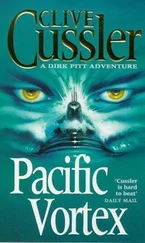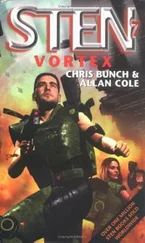Farther south and east, his Second Brigade Tactical Group found itself in a similar situation. Closer to the port facilities at Maputo, its supply problems were less pronounced. But the Second had to fight its way up the tangle of mountains, ridges, and chasms called the Great
Escarpment. Despite heavy losses, its daily gains were often only measured in hundreds of meters.
And the Third…
Vega’s headache intensified. The split-second destruction of his third attack column had been even more disastrous than he’d first supposed. The
Third Tactical Group had been the striking arm that was supposed to outmaneuver the Afrikaner defenses. Without the “three” in his “one-two-three” punch, he was reduced to this damned crawling advance, attacking South Africa’s strongest defenses head-on. It was a formula for losing the war.
Maneuver was the way to win a war in Africa, but he didn’t have any units to maneuver with. At the moment, his sole reserve consisted of two companies of infantry, one of tanks, and a battery of self-propelled artillery.
Stripped of his strategic mobility and tactical flexibility, he’d counted on using chemical weapons to break open the war again. Unfortunately, since that first devastating attack, their effects hadn’t matched his hopes and expectations.
There were several reasons for that. First, the battle for Potgietersrus had used up most of his hastily obtained stocks of sarin. Acquiring more had proven unexpectedly difficult and time consuming. International condemnation and pressures were making even Castro increasingly reluctant to approve its use.
These political restrictions were matched by military difficulties.
Weather was sometimes a problem. To minimize self-inflicted casualties and delays, chemicals were best used when the winds blew from the northeast-toward the enemy lines and away from his own positions. At the same time, Vega knew the Afrikaners were learning how to fight in a chemical environment. They’d doled out a limited supply of protective gear to their front line troops and artillery crews. Unprotected troops were kept dispersed and well hidden. And accurate counter battery fire by long-range G-5 and G-6 155mm guns often wreaked havoc among his own artillerymen when they tried to fire chemical shells.
The Cuban general grimaced. Supply shortages. Commando raids. And the growing fear that his grand offensive might grind to a halt far short of its objectives. All of that was bad enough, however he looked at it. Very bad. But now he had to worry about the damned Western allies-the Americans and their British lackeys.
With the forces at his disposal, he didn’t have the slightest chance of interfering with the Western troop buildup in Cape Town. He’d never planned to fight a war that far away from South Africa’s northern and eastern borders. His strategy had always been to capture the centers of government and let the distant provinces fall into his lap.
Still, he thought, the important regions were within reach. Cape Town was famous for its wine and its wool. Well, he’d
rather have Pretoria’s diamonds and gold. Let Washington and London squabble over South Africa’s dregs.
“Colonel Suarez!” His chief of staff’s office was always next door, well within earshot. Suarez appeared immediately.
“Send a message to Havana, ” Vega ordered. “
“The Western presence means we must accept a limited, but still significant, victory-liberation of the
Transvaal and the Orange Free State. I am sure that you will see the necessity of this decision.”
“
Vega paused briefly, wondering if there was anything else he should add.
Nothing came immediately to mind.
“Send it. And call a staff meeting in five minutes. We have to get this offensive moving again.”
DECEMBER 15-USS MOUNT VsIHITNEY, SIMONS TOWN NAVAL BASE, CAPE TOWN
One thousand miles west of Durban, several anxious-looking staff officers crowded one of the Mount Whitney’s conference rooms. The U.S. and Great
Britain had a secure foothold in the Cape Province, but Cape Town had never been viewed as anything more than a stepping stone toward South Africa’s industrial and political heartland-Pretoria and Johannesburg. Going overland would take too long. Going by sea meant making another landing somewhere farther up the Natal coast-an opposed landing, where they would have to fight their way ashore. The sea route, in spite of its risks, had always been part of the plan, but it might not be fast enough.
“I just don’t see how we can be ready in time, General. The buildup’s just too far behind schedule. ” Brig. Gen. George Skiles, Craig’s chief of staff, was adamant, but also distressed. He was a hard worker, with a “can do” attitude, and it hurt Skiles’s professional pride to admit failure.
Lt. Gen. Jerry Craig sat glowering, a man unhappy with the news he’d received but unable to shoot the messenger. Shipping delays, bad weather in the Atlantic, and tired air crews had already put his buildup nearly three days behind its original schedule. That wasn’t bad when you considered how many tens of thousands of troops and pieces of heavy equipment were en route-streaming across thousands of miles of empty ocean and airspace.
But it wasn’t good enough. Neither the Cubans nor Vorster’s men showed any signs of adhering to the timetable established in Washington.
Photo recon missions over the Potgietersrus area showed massive and unmistakable signs of a Cuban supply buildup. This Vega character was planning to jump-start his own stalled offensive first. At the same time,
Afrikaner commanders up and down the Natal coast were doing what they could to strengthen their own defenses against an allied amphibious assault.
Craig frowned. The schedule for his own planned landing in Durban was looking more and more like a nonstarter.
The original plan called for a full division of U.S. Marines and a Royal
Marine Commando to make the landing, supported by a battalion-sized air assault on Durban’s Luis Botha airfield. Two Army divisions-the 7th Light and the 101st Air Assault-would move in once the airfield had been secured. Heavy armor units still sailing from the U.S. were scheduled to off-load directly at Durban-once its harbor was secure.
The operation was precisely timed and hard to change once the units were in motion. Craig remembered how carefully they’d all considered the date of the landing back in Washington. Tides, weather, and phases of the moon all had to be folded in along with the strategic situation. How quickly could American forces be ready? How fast could the Cubans move?
To allow some flexibility, he’d ordered alternate staff plans prepared.
One assumed landing a day early, one a day late. But by December 24, the planned D day, Vega could be drinking Cape wine in Pretoria, thumbing his nose at the Western allies from the Union Buildings.
Craig lowered his chin onto his chest, thinking hard. Like all good staffs, his people tended to be cautious and conservative-” risk averse” in DOD lingo. They often followed a general rule in putting together operations-figure out how much firepower you thought you’d need and double it. And usually they were right. An amphibious landing was
the riskiest kind of operation in military art. You had to assemble overwhelming firepower, with enough force to shove the bad guys off the beach. But what if your invasion was too late?
Sometimes, you needed to cut corners. Sometimes you had to take more risks. Such as now.
He looked up.
“Okay, here’s the way we play it. We’re landing in Durban on the twentieth, but with only two brigades plus the Commando. The third will have to follow when it can.” He looked at his shocked staff.
Читать дальше












